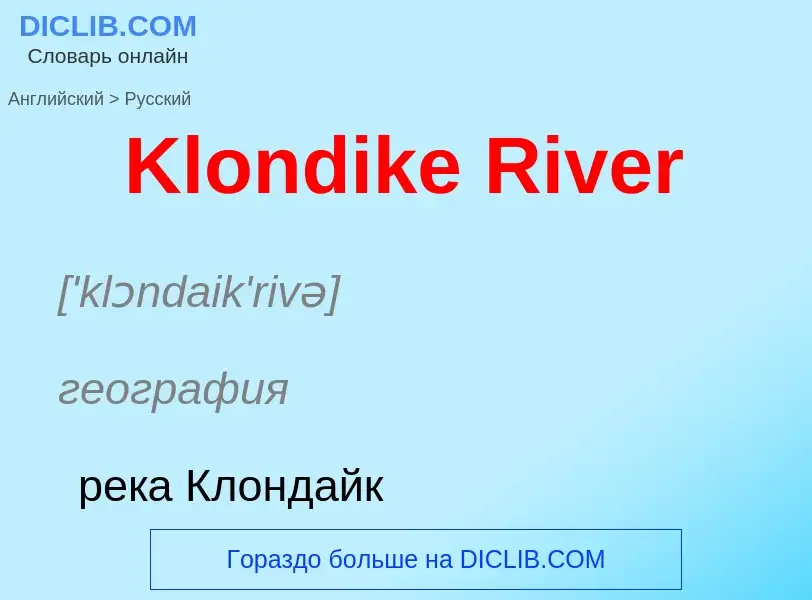Translation and analysis of words by ChatGPT artificial intelligence
On this page you can get a detailed analysis of a word or phrase, produced by the best artificial intelligence technology to date:
- how the word is used
- frequency of use
- it is used more often in oral or written speech
- word translation options
- usage examples (several phrases with translation)
- etymology
Klondike River - translation to russian
['klɔndaik'rivə]
география
река Клондайк
['klɔndaik]
существительное
общая лексика
золотое дно
неисчерпаемый источник дохода
американская азартная карточная игра
сельдевые промыслы (у западного берега Шотландии)
в грам. знач. глагола экспортировать свежую сельдь на континент
география
Клондайк
Wikipedia
The Klondike River (Hän: Tr'ondëk) is a tributary of the Yukon River in Canada that gave its name to the Klondike Gold Rush. The Klondike River rises in the Ogilvie Mountains and flows into the Yukon River at Dawson City.
Its name comes from the Hän word Tr'ondëk (IPA: [ʈʂʼoⁿdək]) meaning hammerstone, a tool which was used to hammer down stakes used to set salmon nets.
Gold was discovered in tributaries of the Klondike River in 1896, which started the Klondike gold rush, and is still being mined today.
In Jack London's story "A Relic of the Pliocene" (Collier's Weekly, 1901), this river was mentioned as "Reindeer River". (See Reindeer Lake.)

![Klondike River (left) flowing into the [[Yukon River]] (top and right) at Dawson City Klondike River (left) flowing into the [[Yukon River]] (top and right) at Dawson City](https://commons.wikimedia.org/wiki/Special:FilePath/Dawson City Rivers Lookout 3264px.jpg?width=200)
